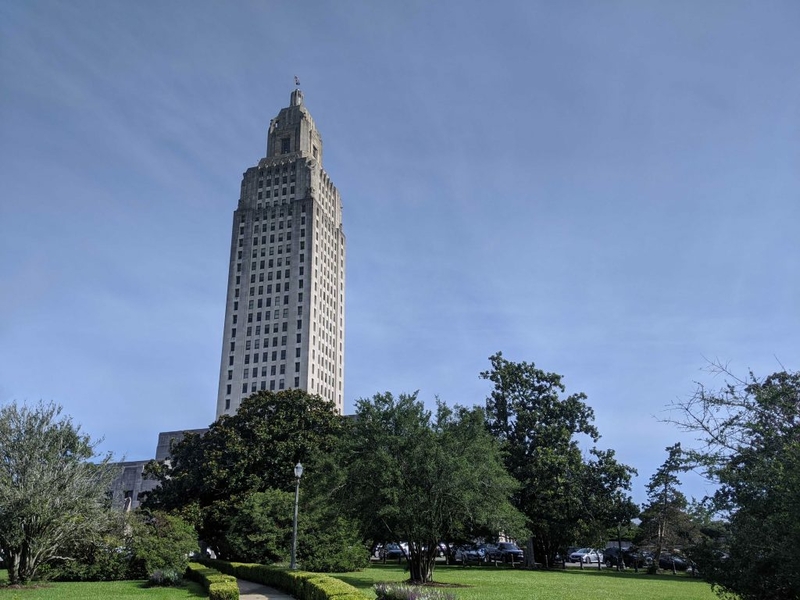Legislators begin review of Louisiana Constitution with eye toward partial overhaul

It comes as no surprise to voters who’ve been asked to decipher proposed amendments that the Louisiana Constitution is one of the most confusing documents around. Since it went into effect on Jan. 1, 1975, the size of the document could double depending on upcoming election results – exceeding 72,000 words.
Three more amendments are on the Dec. 10 ballot, the latest of more than 300 proposed changes to its constitution over the past 47 years – more than all but two states, according to the Council of State Governments (CSG).
Such frequent updates to what’s supposed to be a mostly static document led state Rep. Barry Ivey, R-Baton Rouge, to call for a review of the state charter from his colleagues with an eye toward needed revisions. He chairs a subgroup of the House and Governmental Affairs Committee that started the process Wednesday.
“We’re doing something wrong,” Ivey told the subcommittee after noting the high number of amendments and total rewrites. No other state has rewritten its constitution more than Louisiana, which is on its 11th version.
Massachusetts, by comparison, is still using the first version it approved in 1778. It has amended it a relatively low 120 times since then, CSG records show.
Ivey tasked members of the subcommittee with a review of the state constitution, focusing on “language that is unusual,” outdated and redundant, as well as measures that most states would handle with new laws their legislature creates rather than voter referenda.
Steven Procopio, president of the nonpartisan Public Affairs Research Council (PAR), told the subcommittee the large majority of changes to the Louisiana Constitution have involved property taxes. For example, four amendments last month’s ballot involved property millages and related homestead exemptions.
While stressing PAR doesn’t recommend lawmakers convene a constitutional convention, Procopio said they strongly consider a major update. For about 70 years, his group has published guides to proposed amendments that have become a go-to educational primer for Louisiana voters. PAR does not support or oppose individual amendments.
The legislature has come together just once since 1974 to propose a constitutional rewrite. In 1992, a dozen versions were floated, and voters ultimately rejected the finalized version. However, several proposals from that effort – including budget restrictions – eventually gained approval when put in amendment form in subsequent years.
PAR reviewed legislative committee meetings and debate for the four proposed constitutional amendments put before voters in 2019. The average hearing time for each piece of legislation was six minutes, according to Procopio.
“That is something that doesn’t scream ‘fundamental change,’” he said.
A suggestion Procopio offered to the subcommittee was that any proposed constitutional amendment receive legislative approval in two successive annual sessions before being placed on the ballot. Concerns about not being able to make an urgent change to the constitution are unwarranted, he said, based on his review of ballot proposals since 1974.
“If you need an emergency constitutional amendment, then your constitution isn’t working in the first place,” Procopio said.
The subcommittee also discussed the often confusing ballot language of proposed amendments. Procopio said the technical language is often the result of the legislature’s lawyers wanting to make sure the change will hold up if challenged in court.
Rep. Foy Gadberry, R-West Monroe, who sits on the subcommittee, said he learned firsthand last month at his polling place that voters are rejecting any proposal they can’t grasp.
“Probably 80% of the people within hearing distance of me said they were voting no on every one of (the amendments) because they didn’t understand them,” Gadberry said.
All standing House committees have been asked to review the sections of the Louisiana Constitution that apply to their subject-area focus. For example, the House Ways and Means Committee will cover all tax-related portions of the state charter. Reports from each committee’s analysis are due March 15, 2023, according to the resolution Ivey authored that set up the review process.
The House and Governmental Affairs analysis carries significant weight because any constitutional revision proposals eventually have to go through its members.








